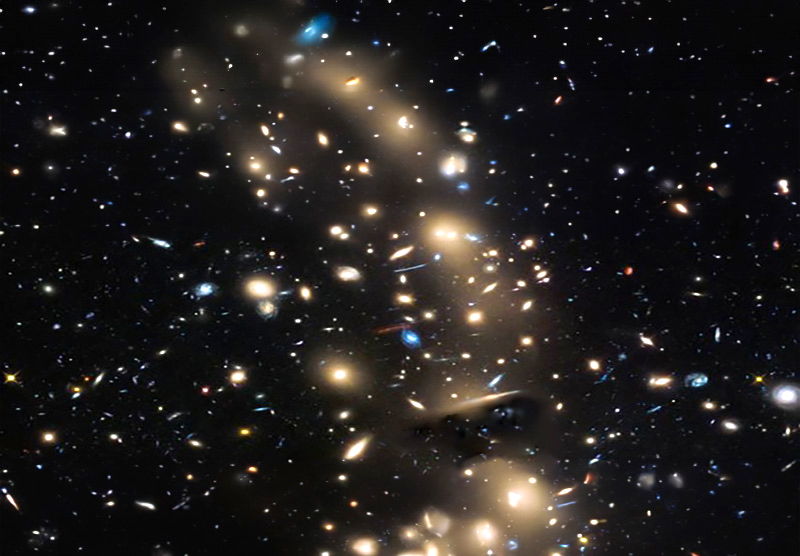But God loves dust particles

Very early, we discovered that walking to the top of a mountain did not seem to get us any closer to the planets or stars. Even in a balloon or aeroplane we failed.
The first accurate measurement of the distance of the moon from earth was made two centuries BC by Hipparchus. He calculated 385,000 km. A large number: but the sun is about 150 million km from us, and the nearest star is 40,000 billion km. No wonder it is hard to get closer.
Early in the 20th century, Edwin Hubble, he of the Hubble telescope, discovered that our galaxy is one of very many and that the universe is still getting bigger.
Here are two quotations from him:
In the face of the vastness of space, our existence is both insignificant and extraordinary
As we gaze upon the stars, we are reminded of our own smallness in the grand cosmic ballet
We always knew the universe was larger than we were, but Hubble showed our appreciation of the size was hundreds of billions of times too small. “Our existence is … insignificant”? And how! We cannot appreciate its size through our senses. Our senses can only stretch to comparing small numbers with those about a million times bigger. The truth is: for us little ants the universe is too big to appreciate. It is unimaginably larger than the unimaginably large.
We are looking at infinity, beyond the limit of our senses.
The Psalmist said: “When I look at your heavens, the work of your fingers, the planets and stars which you have put in place… - What are You, that You are interested in us?” What sort of Being are You that You are even aware of – and love - us sub-microscopic dust particles? You are beyond our imagination, so far beyond that even the heavens can’t provide a crown majestic enough for You to wear, but we are highly significant to you.